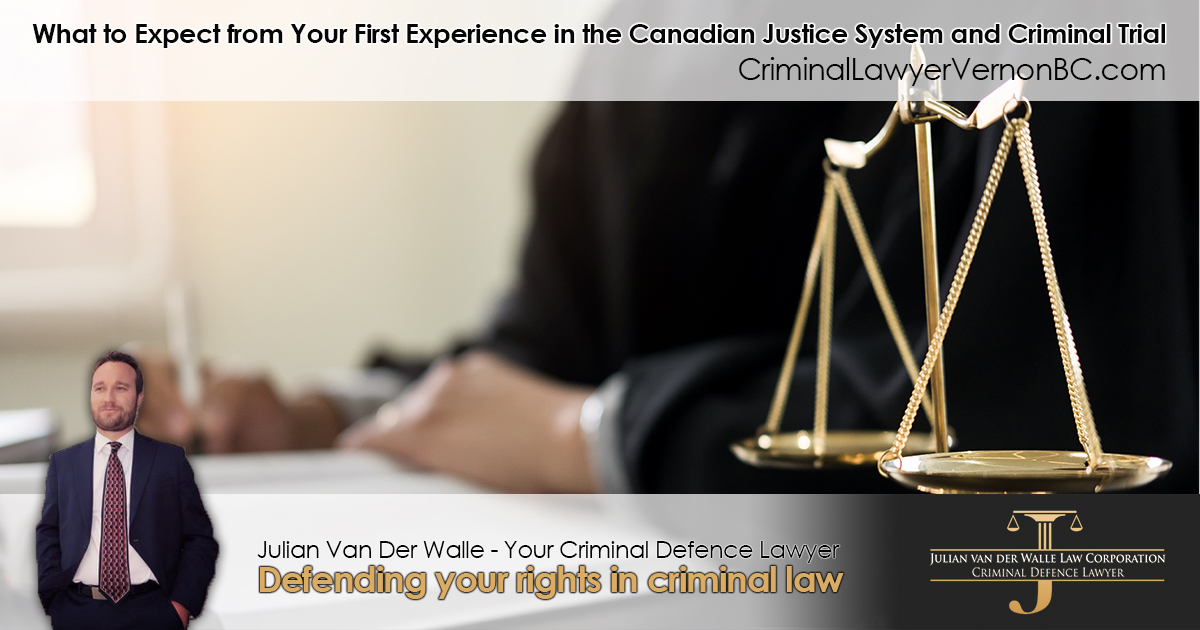What to Expect from Your First Experience in the Canadian Justice System and Criminal Trial

Unfortunately, the Canadian criminal justice system rarely offers a pleasant experience for the accused.
If you have found yourself charged with a crime, be prepared to brace yourself for a stressful and unpleasant courtroom experience. Hiring a lawyer can mitigate the stress and time involved in preparing a criminal defense; however, the process from police investigation to trial (or out of court settlement) will still be lengthy and difficult. This article is intended to provide basic information about that process so that criminal suspects will go to court with some minimal knowledge of the justice system and the purposes of certain parts of the process.
Police Investigation and Criminal Charges
The first part of the criminal process is the investigatory stage. At this point, a crime has been reported to the police and they are trying to collect evidence and identify the perpetrator. As a suspect in an investigation, you will be either asked to voluntarily tell the police what you know or arrested and interrogated.
Once the police are satisfied that they have identified the culprit, Crown Counsel (lawyers for the government) will file criminal charges. At this point, the criminal defendant will receive either an “appearance notice,” a “promise to appear,” a “summons,” a “recognizance,” or an “information.” Each of these documents serves different purposes for court administration, but for the criminal defendant, they all mean the same thing. Each of the listed documents will tell you three things:
- what you have been charged with;
- what kind of offense it is; and
- the date, time, and place of your first appearance in court.
If you receive any of these documents, it is important to thoroughly read it and then immediately contact an attorney like Julian Van Der Walle if you have not yet hired one.
Between First Appearance and Trial
Once you have been provided notice of pending charges, you must appear in court at the date and time of your court hearing. This hearing is known as a first appearance. In general, the first appearance will be in provincial court, however, you should appear wherever the notice directs you to appear. If you fail to appear, the judge may order the police to arrest you and bring you to court.
The first appearance is a procedural hurdle that the Crown Counsel must overcome.
Crown Counsel’s job is essentially to prove that he or she has enough evidence against you to proceed to trial. As a criminal defendant, you are under no requirement to make any argument or rebut the evidence in any way; however, you may attempt to do so if you choose. Keep in mind, however, that if you do speak at the initial hearing, you will be under oath. Therefore, be sure not to lie to the court or you can face perjury charges.
Before the trial, you also have the opportunity to discover any evidence that Crown Counsel has against you. This process is known as “disclosure.” During disclosure, you can request that Crown Counsel provide you and your attorney access to all of the evidence they have against you so that you can review it to help build your case.
Going to Trial
The trial is the critical step in the process that will decide guilt or innocence. The trial will begin with the Crown Counsel’s presentation of evidence. This will include the questioning of witnesses, which you and your attorney can cross-examine. You may also object to the admissibility of any evidence Crown Counsel brings against you.
Crown Counsel has the burden to prove that you committed the crime, that all components of the crime charged occurred, and your criminal intent to commit the crime. The Crown Counsel must prove that you are guilty beyond a reasonable doubt.
Until either the judge or the jury returns its verdict, you are presumed innocent. As a result, it is not necessary for you to present any evidence or defend yourself at all if you believe the Crown Counsel’s evidence is insufficient. However, you do have the opportunity to present your own witnesses and decide whether or not to testify in your own defense. Testifying is not always advisable, as the Crown Counsel will have the opportunity to cross-examine you.
At the conclusion of the trial, both Crown Counsel and your attorney will have the opportunity to make final arguments for guilt or innocence. Then, either the judge or the jury will render a verdict which will find you either guilty or not guilty. If you are found not guilty, you are free to leave. If you are found guilty, you will be remanded into custody.
If you have additional questions about the criminal process, you should contact an experienced criminal lawyer like Julian Van Der Walle. You can do so via phone, email, web chat or fill out the form below.
Related Stories
Does drug addiction cause more crime?
Many in Canada often associate drugs with crime, and in many cases, the possession or use of drugs is itself a crime. More recently, a spotlight has been placed on drug-related incidents due to the opioid crisis afflicting the nation. Sociologists have spent...
Why You Should Hire a Vernon Criminal Defense Attorney
As a whole, the Canadian justice system is very fair. The accused enjoy the right to be present and be heard in court, the right to remain silent, and the right to representation by legal counsel. That last right is one of the most important rights of all. This...
Bad IRP Decision? What Can You Do About It?
Bad IRP Decision? What Can You Do About It? Drivers who are caught driving under the influence by the police may receive an Immediate Roadside Prohibition (IRP) on driving. An IRP is a temporary driving suspension that prevents the recipient from driving for a...
REQUEST A FREE CONSULTATION
Call 1.877.212.9645
Or fill out the form below to receive a free and confidential initial consultation.
